Training for Trainers
Based on 5 years of European-funded research, working with 2 universities and 8 Caravan members Circus Trans Formation In Action provides ongoing training in social circus. Our trainers take 4 modules in 4 different international circus schools, joining circus trainers from across the world.
Circus Trans Formation 7
We’re back once again with our flag-ship international social circus training programme, Circus Transformation in Action. In this cycle, 22 new circus trainers taking part in 4 pedagogical modules taking place in 2023-24.
Partners
Sorin Sirkus
Galway Community Circus
Ecole de Cirque de Bruxelles
Altro Circo
CIRQUEON
Palestinian Circus School
Cirkokrog
cirquenciel
Kreativni Pogon
Cirkus Cirkör
Sirkus Magenta
Nablus
Timeline 2021
Module A: Sorin Sirkus, Finland (12 – 16 June 2023 in Tampere, Finland)
Module B: Ecole de Cirque de Bruxelles (27 November – 1 December 2023 in Brussels, Belgium)
Module C: Altro Circo, Italy (19 – 23 January, 2024 in Siena, Italy)
Module D: Galway Community Circus, Ireland (3 – 7 April 2024 in Galway, Ireland )
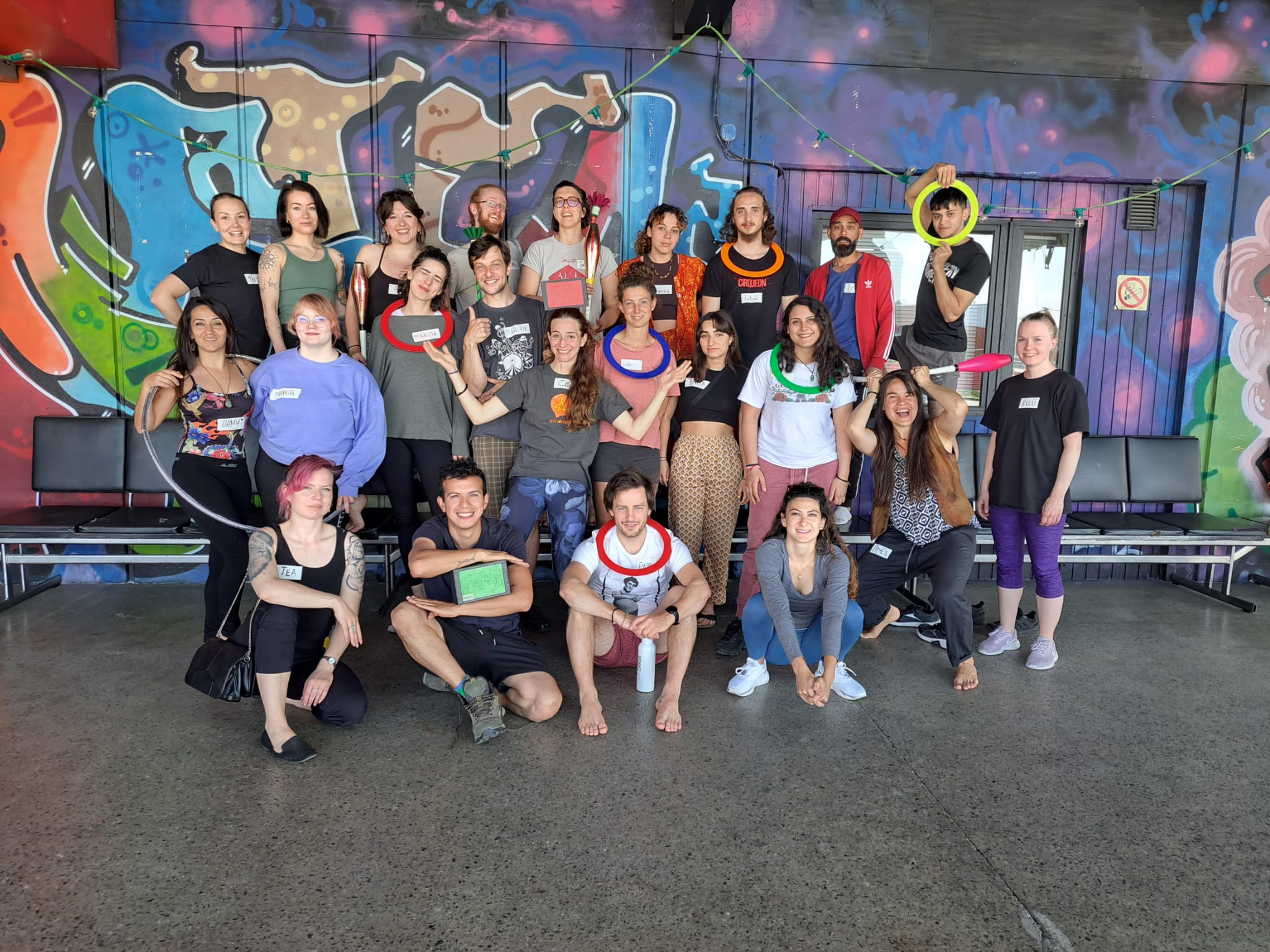
Circus Trans Formation 6
We’re back once again with our international social circus training programme, with 20 new circus trainers taking part. Scheduled to take place in 2020, CTF 6 will take place in 2021 due to Covid-19 crisis.
Partners
Sorin Sirkus
Sirkhane
Zaltimbanq’
Galway Community Circus
CIRQUEON
Palestian Circus School
Cirkus Fuskabo
Altro Circo
Ecole de Cirque de Bruxelles
Upsala Cirkus
Timeline 2021
Module A: Fuskabo, Slovenia
Module B: Sorin Sirkus, Finland
Module C: Altro Circo, Italy
Module D: Galway Community Circus, Ireland
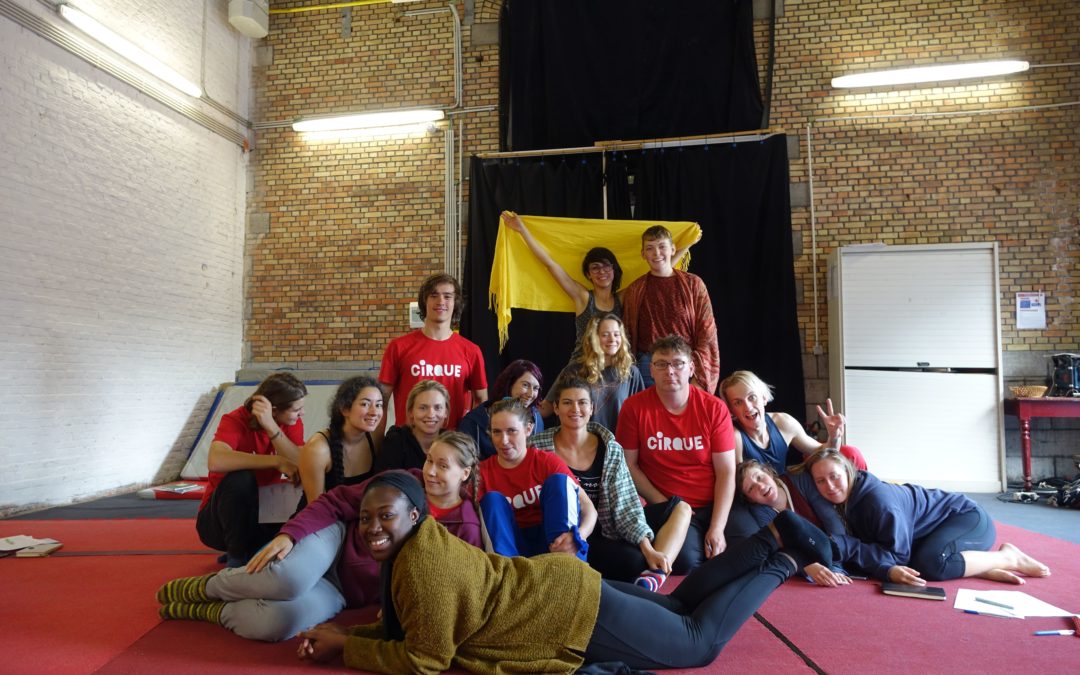
Circus Trans Formation 5
Partners
Sorin Sirkus
CIRQUEON
Zaltimbanq’
Galway Community Circus
Metis Gwa
Belfast Community Circus School
Cirkokrog
Altro Circo
Ecole de Cirque de Bruxelles
Hringleikur
Timeline
Module A: Sorin Sirkus, Finland 10-14 June 2019
Module B: Ecole de Cirque de Bruxelles 14-18 October 2019
Module C: Zaltimbanq’ 10-14 February 2020
Module D: CIRQUEON last quarter 2020
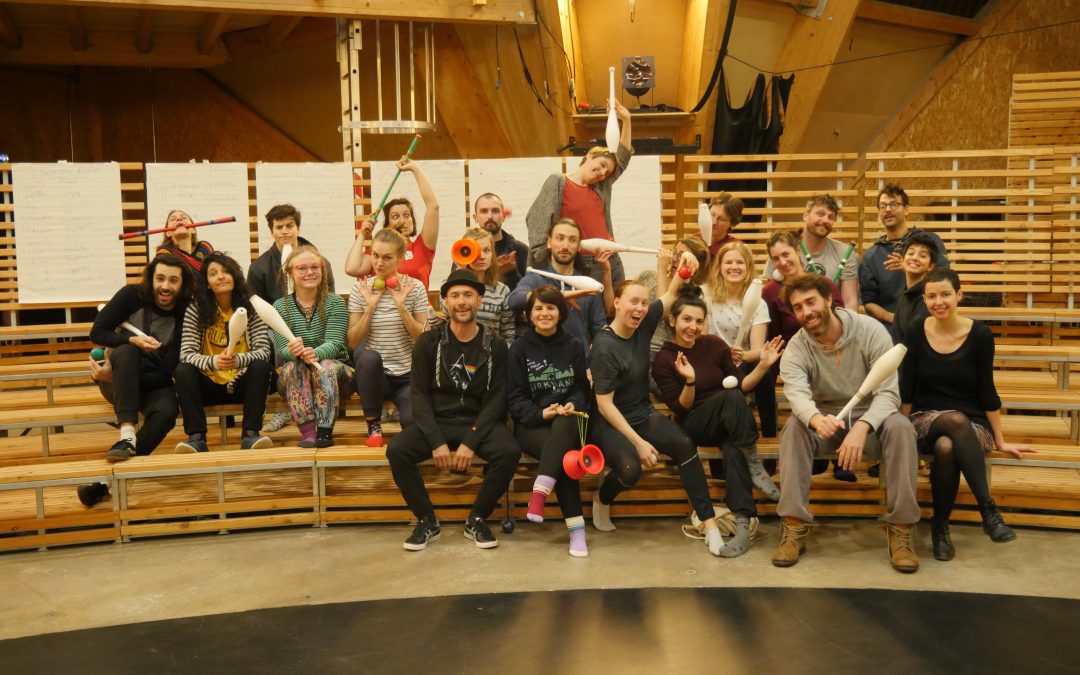
Circus Trans Formation 4
The fourth round of our training for social circus trainers programme kicked off in September in Cabuwazi in Berlin. We’re looking forward to continuing working with our talented participants in 2019.
Partners
Le Plus Petit Cirque du Monde, France
Ecole De Cirque de Bruxelles, Belgium
Sorin Sirkus, Finland
Cabuwazi, Germany
AltroCirco, Italy
Cirkokrog, Slovenia
Skala, Slovenia
Galway Community Circus, Ireland
Sirkhane, Turkey
Upsala Zirk, Russia
CIRQUEON, Czech Republic
Participants
22 circus trainers
Activities
Module A: social context from 3-7 September 2018 in Berlin hosted by CabuwaziF
Module B: Act of teaching, from 7-11 January 2019 in Brussels hosted by Ecole de Cirque de Bruxelles
Module C: Management/Steering of teaching, from 18-22 March 2019 in Bagneux hosted by Le Plus Petit Cirque du Monde
Module D/E: circus techniques & creativity / foundations , from 3-7 June 2019 in Tampere hosted by Sorin Sirkus
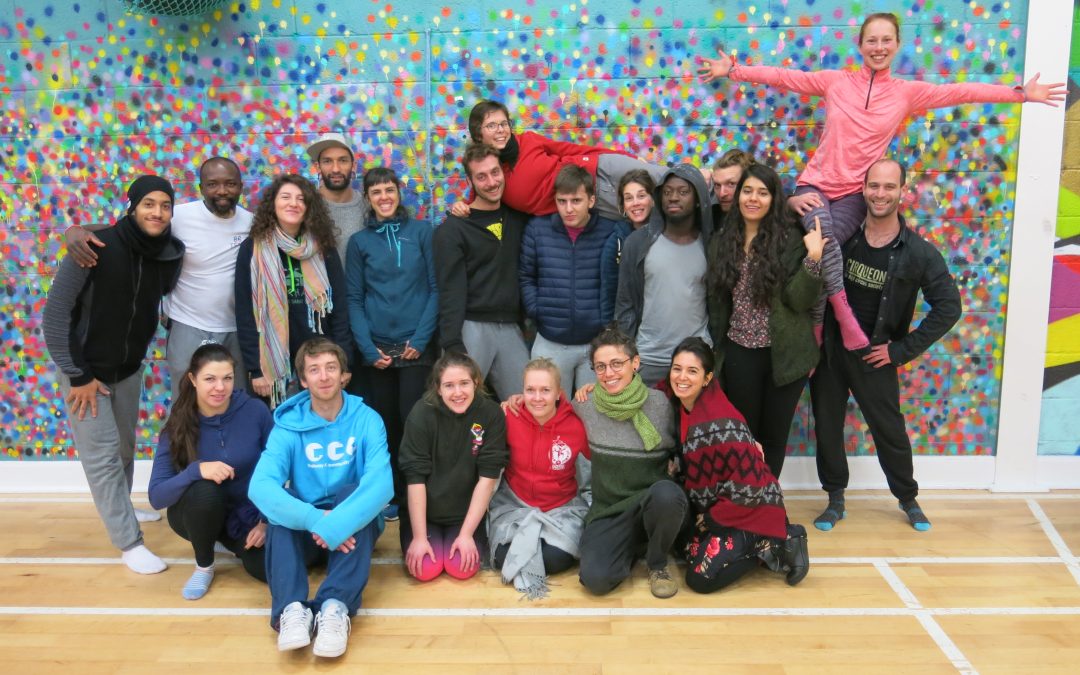
Circus Trans Formation 3
Our Circus Trans Formation In Action training programme is still at the core of Caravan’s activity, and continues to develop new generations of social circus trainers. It’s the outcome of a 5-year European research carried out by 2 universities, 8 Caravan members and the Caravan office, resulting in the development of a framework of competences for social circus trainers.
We continue to use our Guidebook for Social Circus Trainers to teach social circus trainers across the world and produce international exchanges of ideas.
Circus in Trans Formation in Action 3 concluded this year in December, creating a strong group of inspiring trainers, that continue to develop partnerships after the training.
Partners
Galway Community Circus, Ireland
AltroCirco, Italy
Belfast Community Circus School, United Kingdom
CIRQUEON, Czech Republic
Le Plus Petit Cirque du Monde, France
Sorin Sirkus, Finland
Upsala Zirk, Russia
Metis Gwa, Guadeloupe
Ecole de Cirque de Bruxelles , Belgium
Sirkhane, Turkey
Ton sur Ton, Switerland
Participants
20 circus trainers
Activities
Module A : Social Context. 26-30 March 2018 in Bagneux (France) and hosted by Le Plus Petit Cirque du Monde (France)
Module B : Act of Teaching. 4-8 June 2018 in Tampere (Finland) and hosted by Sorin Sirkus
Module C: Management/Steering of teaching. 8-12 October 2018 in Brussels (Belgium) and hosted by Ecole de Cirque de Bruxelles
Module D : Circus Techniques & Creativity. 3-7 December 2018 in Galway (Ireland) and hosted by Galway Community Circus
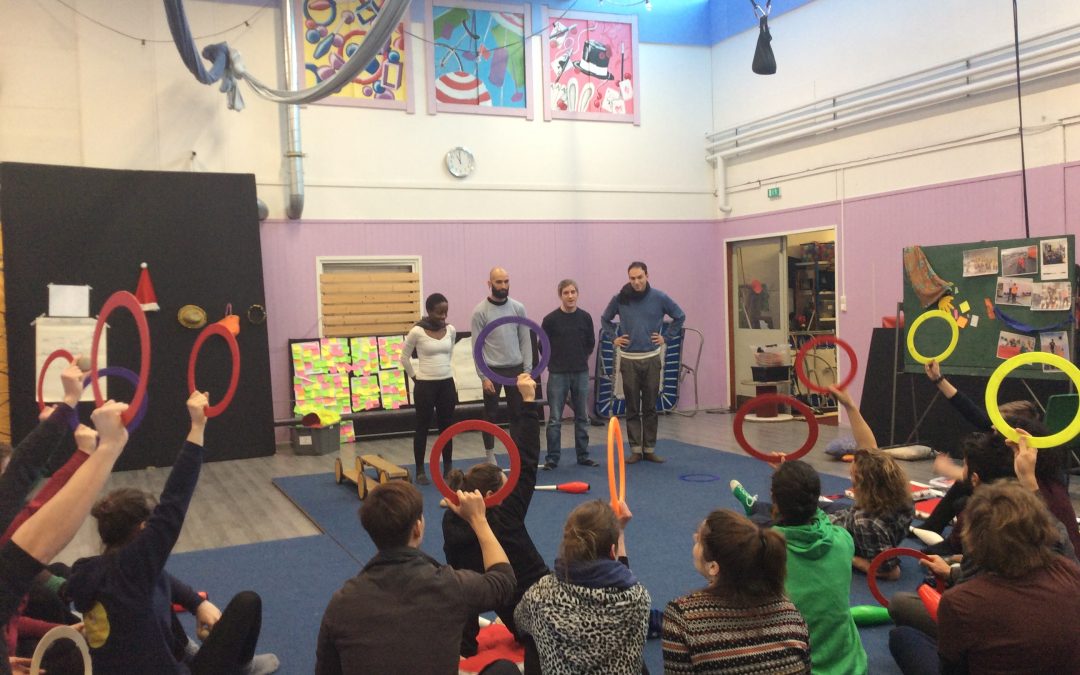
Circus Trans Formation in Action 2
November 2016 to September 2017
The training is based on a Caravan research directed in 2014 that led to the creation of the Guidebook for Social Circus Trainers. This manual is the outcome of a 5-year European research carried out by 2 universities, 8 Caravan members and the Caravan office.The training will take place in 4 different places. There will be 4 sessions of 5 days.The 1st session will take place from 21_25 November in Belfast (United-Kingdom) and will be delivered by Belfast Circus School.The 2nd session will take place from 13 – 17 February 2017 in Tampere (Finland) and will be delivered by Sorin Sirkus.The 3rd session will take place from 5 – 9 June 2017 in Brussels (Belgium) and will be delivered by Ecole de Cirque de Bruxelles.The last session will take place from 11– 19 September 2017 in Bagneux (France) and will be delivered by Le Plus Petit Cirque du Monde.
Each session is focussing on specific TLUs or Teaching/Learning Units of the Guidebook for Social Circus Trainers. The first session deals with TLU A « Social context ». The second session deals with TLU B « Act of teaching ». The 3rd session deals with TLU C « Management / Steering of teaching ». The 4th session deals with TLU E « Foundations » and TLU D « Circus Techniques & Creativity ».The training gathers 10 Caravan members :
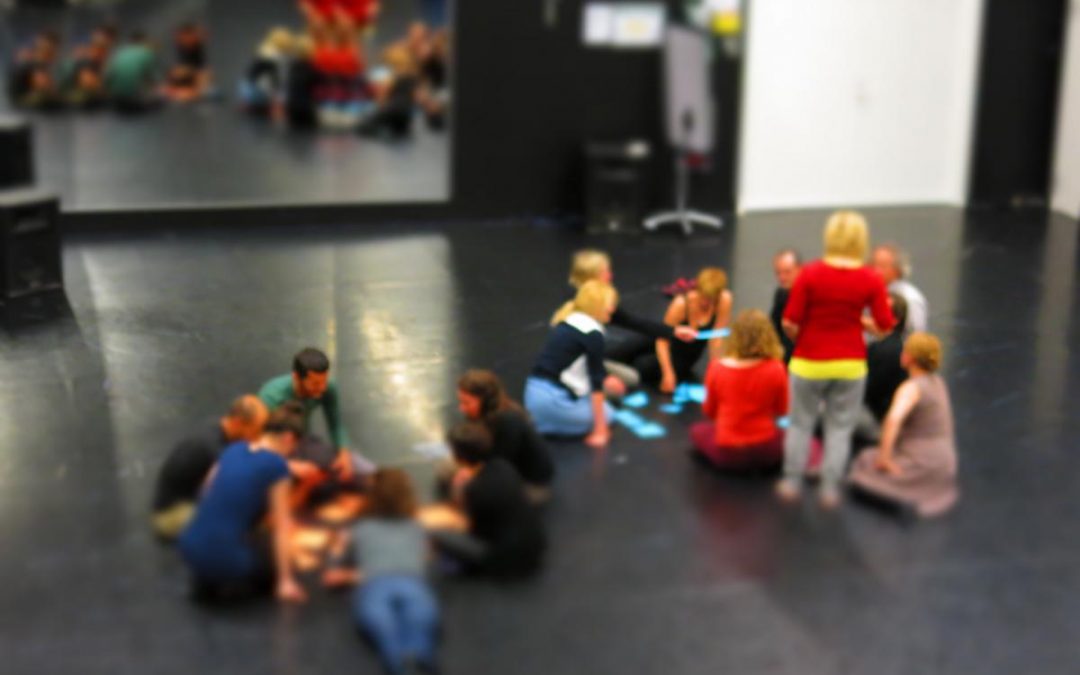
Circus Trans Formation in Action 1
Social circus training for trainers
October 2015 to September 2016
The training is based on our Guidebook for Social Circus Trainers, which is the outcome of a 5-year European research carried out by 2 universities, 8 Caravan members and the Caravan office. The training took place in 4 different places, 4 sessions of 5 days. The 1st session will took place from 26 – 30 October 2015 in Stockholm and was be delivered by Cirkus Cirkör. The 2nd session took place from 15 – 19 February 2016 in Tampere and was delivered by Sorin Sirkus. The 3rd session took place from 6 – 10 June 2016 in Brussels and was delivered by Ecole de Cirque de Bruxelles. The last session took place from 19 – 23 September in Belfast and was delivered by Belfast Community Circus School in collaboration with Le Plus Petit Cirque du Monde. Each session was focussed on specific TLUs or Teaching/Learning Units of the Guidebook for Social Circus Trainers. The first session dealt TLU E « Foundations » and TLU D « Circus Techniques & Creativity ». The second session dealt with TLU B « Act of teaching ». The 3rd session dealt with TLU C « Management / Steering of teaching ». The 4th session dealt with TLU A « Social context ».
Email info@caravancircusnetwork.eu
Phone +32 (0)492 12 71 71
Rue Picard 3
1000 Brussels
Belgium

Made by Alice Toullec & Alex Craste
